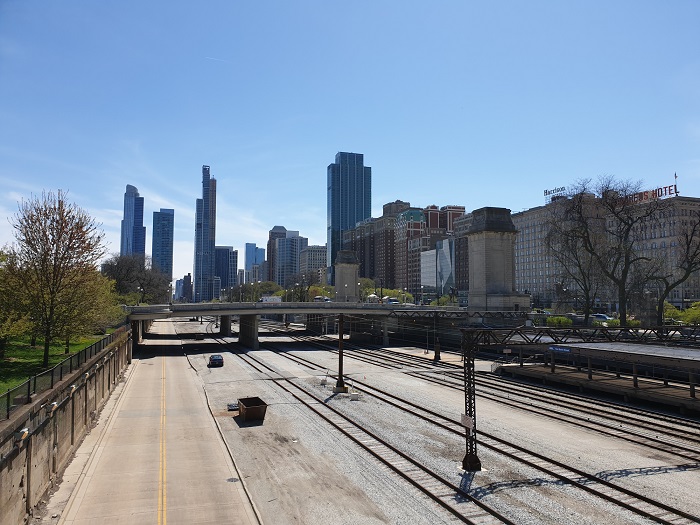headline news online news
By Alice Yin and A.D. Quig
Chicago Tribune
(TNS)
Chicago (TNS) — Chicago will receive less migrant aid than city leaders had hoped for in the new state budget deal, a continuation of Springfield’s recent practice of awarding Chicago far below its funding requests for housing a growing population of asylum-seekers. online news
The $50.6 billion state budget approved by the Illinois Senate late Thursday and the House early Saturday includes $42.5 million to provide services for migrants arriving from the country’s southern border. That provision emerged earlier Thursday following an ask from Mayor Brandon Johnson; however, his administration had pressed for more, and the $42.5 million total will be available to counties and towns statewide, rather than just Chicago.
Following news that lawmakers had reached a budget deal, Johnson said Wednesday, “I hope the news is as good as we desire” regarding migrant services funding. But while his team had been asking for more relief, state lawmakers also have a veto session in the fall in which they can appropriate additional funds.
Finding the money to sustain the city’s increasingly strained shelter operations for the 10,000 migrants who have arrived in Chicago since August has proven one of the earliest tests of the new administration. Former Mayor Lori Lightfoot declared the humanitarian crisis as a state of emergency during her last days in office, while city officials warned there were only enough funds to keep housing and feeding the asylum-seekers through the end of June.
According to a May letter from Chicago’s congressional delegation, the city has spent more than $75 million in the past nine months on the new arrivals, who mostly hail from Central and South America. About $15 million of that aid has been the city’s own funds. A proposal to allocate another $51 million toward migrant services from previous budget surpluses was temporarily blocked Wednesday by a group of conservative aldermen but is expected to get a vote in the coming days.
The push-and-pull between Chicago and Springfield over how to pay for the influx of migrants continues as both Republican governors and nonprofits at southern border states, particularly Texas, don’t appear likely to stop flying and busing asylum-seekers north anytime soon. In a budget hearing this month, city officials said they first requested $53.5 million from the state and only got $20 million. When they asked a second time, for $61.7 million, the state granted just $10 million. On the federal side, the city’s $66.7 million request to FEMA was met with a $4.3 million award.
Gov. J.B. Pritzker’s administration has said the state has spent a total of $260 million on shelter and care for asylum-seekers. But the harsh living conditions continue in Chicago, where more than 700 migrants are currently sleeping on the floors of Chicago police station lobbies, thousands more in makeshift shelters, and divisions continue to emerge among communities and local officials over how to handle their needs without neglecting longtime Chicagoans.
Indeed, some of the aldermen who have opposed more funding from migrants — whether from city or state offers — represent Black neighborhoods that they say have long been disinvested and deserve a share of the resources too. It is an early test of Johnson’s frequent refrain from the campaign that there’s “enough for everyone” in Chicago.
In Springfield’s latest budget season, Democrats also had to grapple with skyrocketing costs in a program that provides Medicaid-style health benefits for immigrants who are in the country without legal permission or otherwise don’t qualify for the traditional insurance program for the poor. That would not apply to the vast majority of new arrivals because they require employment authorization via a federal application process that has been jammed up for months now.
That means on the county government side, costs are also expected to rise.
Through the end of April, Cook County Health provided care to roughly 6,000 asylum-seekers since September 2022, including health screenings and primary care at a Northwest Side clinic, and when needed, specialty or inpatient services at Stroger Hospital. Overall, hospital officials said asylum-seekers had made 28,600 visits to CCH in that span.
Between September and January, the state had covered the cost of nursing staff, while CCH “covered all other operational costs, including physicians, facility, supplies, and pharmaceuticals,” CCH spokeswoman Alexandra Normington told the Tribune in April. The cost was roughly $1.7 million per month at its peak, but dipped to roughly $1.1 million as fewer asylum-seekers arrived.
But the state stopped picking up the nursing cost — about $1.5 million — at the start of February. As demand began to rise again, Cook County Board President Toni Preckwinkle went to Springfield earlier this month to ask leaders to turn the spigot back on.
“When we were in Springfield two weeks ago, we talked to our legislative leaders — including the speaker and the president — about the resources we needed to provide health care to folks who have been arriving daily from Texas. That was $8 million for the end of the state’s fiscal year, which is June 30, then $20 million for the succeeding year,” Preckwinkle told reporters Thursday. She said she reiterated that ask during a recent conversation with the governor.
“I can’t tell you what’s going to happen,” with funding, she said Thursday, hours before the general assembly passed the deal. She said she had “no idea” how much the county might receive from the $42 million figure.
©2023 Chicago Tribune. Visit chicagotribune.com. Distributed by Tribune Content Agency, LLC.
headline news online news


